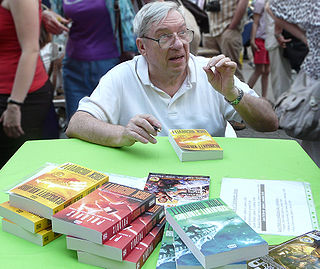A Quote by Jane Austen
Facts or opinions which are to pass through the hands of so many, to be misconceived by folly in one, and ignorance in another, can hardly have much truth left.
Related Quotes
The agnostic, the skeptic, is neurotic, but this does not imply a false philosophy; it implies the discovery of facts to which he does not know how to adapt himself. The intellectual who tries to escape from neurosis by escaping from the facts is merely acting on the principle that “where ignorance is bliss, ‘tis folly to be wise.
If my false figures came near to the facts, this happened merely by chance ... These comments are not worth printing. Yet it gives me pleasure to remember how many detours I had to make, along how many walls I had to grope in the darkness of my ignorance until I found the door which lets in the light of the truth ... In such manner did I dream of the truth.
Incredulity is not wisdom, but the worst kind of folly. It is folly, because it causes ignorance and mistake, with all the consequents of these; and it is very bad, as being accompanied with disingenuity, obstinacy, rudeness, uncharitableness, and the like bad dispositions; from which credulity itself, the other extreme sort of folly, is exempt.
To compel a man to furnish contributions of money for the propagation of opinions which he disbelieves and abhors is sinful and tyrannical...A wise and frugal government...shall not take from the mouth of labor the bread it has earned...Congress has not unlimited powers to provide for the general welfare but only those specifically enumerated...Would it not be better to simplify the system of taxation rather than to spread it over such a variety of subjects and pass through so many new hands?
Truths emerge from facts, but they dip forward into facts again and add to them; which facts again create or reveal new truth (the word is indifferent) and so on indefinitely. The 'facts' themselves meanwhile are not true. They simply are. Truth is the function of the beliefs that start and terminate among them.
In the form of the oeuvre, the actual circumstances are placed in another dimension where the given reality shows itself as that which it is. Thus it tells the truth about itself; its language ceases to be that of deception, ignorance, and submission. Fiction calls the facts by their name and their reign collapses; fiction subverts everyday experience and shows it to be mutilated and false.
I hate symbolic art in which the presentation loses all spontaneous movement in order to become a machine, an allegory -- a vain and misconceived effort because the very fact of giving an allegorical sense to a presentation clearly shows that we have to do with a fable which by itself has no truth either fantastic or direct; it was made for the demonstration of some moral truth.







































